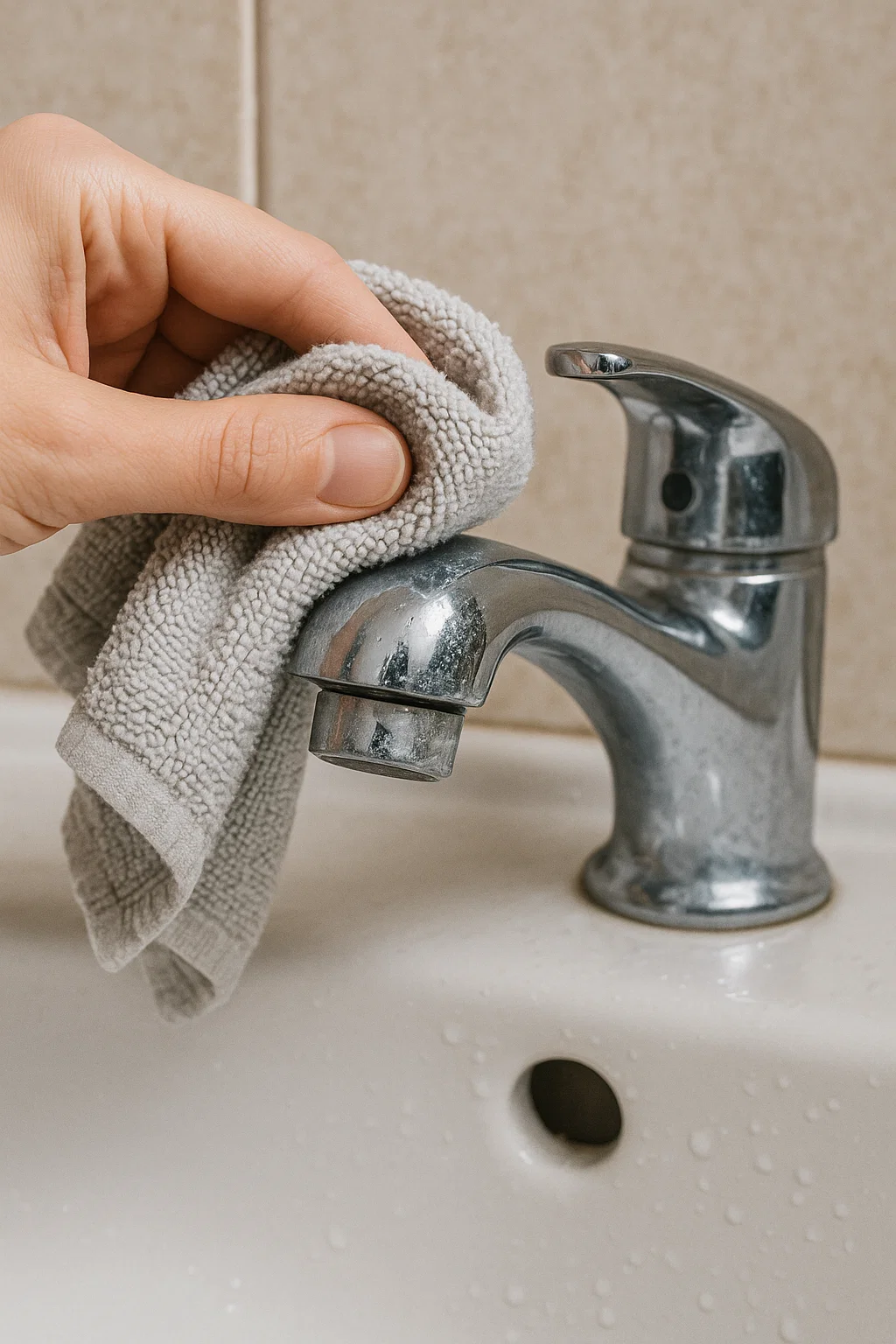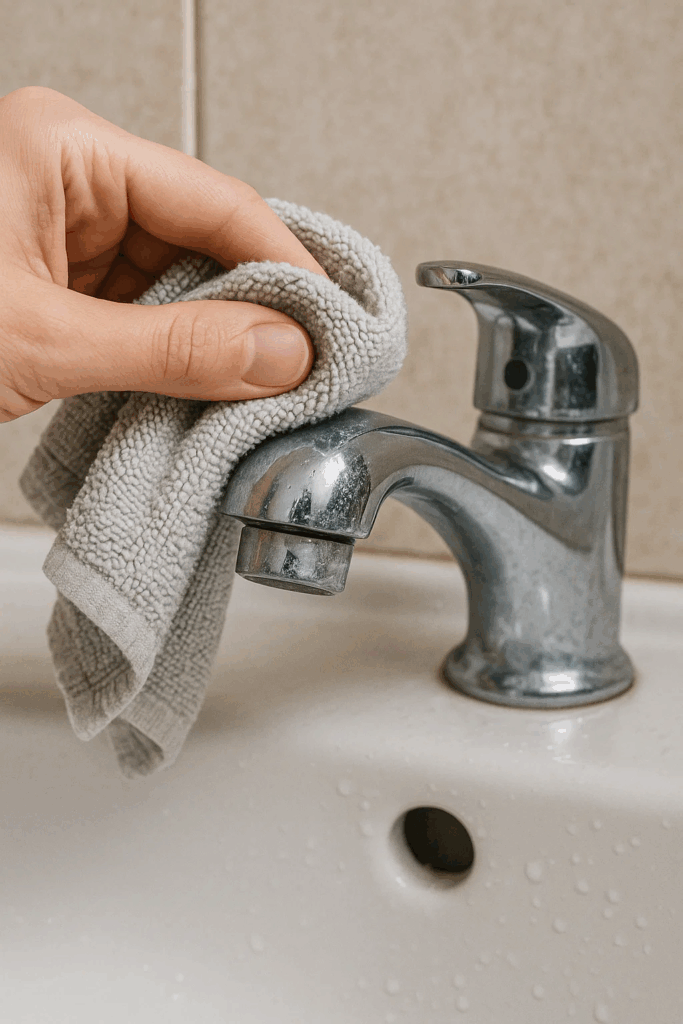My Grandma’s No-Effort Hack to Erase Hard Water Stains in 2 Minutes — Here’s the Trick
When I was a kid, weekends at my grandma’s house were pure magic. It was a cozy place where love, laughter, and practical wisdom were passed down like family heirlooms. Among the many handy tips she shared, one stands out: a ridiculously easy method to banish hard water stains — those pesky marks that love to cling to faucets, glass, and shower doors. This trick takes just two minutes and requires virtually zero elbow grease, yet it’s saved me hours of scrubbing over the years.

1. Why Hard Water Leaves Stains
Hard water stains form when mineral-rich water evaporates, leaving behind traces of calcium and magnesium. Over time, these deposits build up into chalky spots and streaks, especially on bathroom fixtures, shower glass, and dishware. The harder the water, the worse the stains — and if ignored, they can dull surfaces and even affect appliances.
2. The Simple Ingredient You Already Own
The secret weapon is plain white vinegar — yes, the kind sitting in your kitchen cabinet. Its natural acidity makes it a powerful cleaner, perfect for tackling stubborn mineral buildup without relying on harsh chemicals. All you need is about half a cup, depending on the area you’re cleaning. It’s inexpensive, eco-friendly, and non-toxic, making it a smart alternative to commercial products.
3. Why It Works So Well
Vinegar’s acetic acid (typically 5%) gently dissolves calcium and magnesium deposits without harming most surfaces. Unlike abrasive cleaners, it breaks down buildup quickly and efficiently, restoring shine in minutes — no scrubbing required.
4. Step-by-Step Instructions
Pour half a cup of undiluted white vinegar into a spray bottle.
Generously spray it onto the affected area, ensuring full coverage.
Let it sit for two minutes so the acid can work its magic.
Wipe the surface with a paper towel or microfiber cloth. The stains should lift away effortlessly, leaving everything spotless.
5. The Science Behind the Trick
The acetic acid in vinegar reacts with the calcium carbonate in the deposits, producing calcium acetate, water, and carbon dioxide. This chemical reaction breaks the bonds holding the minerals in place, allowing them to be wiped away with ease.
6. Common Mistakes to Watch Out For
Avoid using vinegar on delicate surfaces like natural stone or certain metals, as it can cause etching. Always spot-test first. Another misstep is wiping too soon — give the vinegar a couple of minutes to do the heavy lifting.
7. How It Compares to Other Popular Hacks
Other viral solutions include lemon juice, baking soda, and store-bought cleaners. Lemon juice works similarly but is often pricier and less potent. Baking soda requires scrubbing since it’s abrasive, and commercial cleaners may contain harsh chemicals. Vinegar remains the fastest, cheapest, and most eco-friendly option.
8. Preventing Stains Before They Start
Installing a water softener can reduce mineral content, minimizing future buildup. Simple daily habits help too — wiping down fixtures, using a squeegee on shower doors, and drying surfaces after use can keep everything looking fresh.
9. How Often to Use This Hack
Frequency depends on your water’s hardness. In areas with very hard water, a weekly vinegar spray keeps stains under control. With softer water, once a month is often enough for easy maintenance.
10. Real-Life Results from Others
People rave about this method online. One person said, “I doubted it at first, but after trying the vinegar trick, my shower door looked brand new.” Another shared, “I’ve wasted so much time scrubbing with baking soda and cleaners. Nothing worked as easily as vinegar. It’s my go-to now.”
11. Budget-Friendly and Eco-Conscious
Vinegar is biodegradable, safe for the planet, and incredibly affordable — a single gallon costs just a few dollars and lasts for multiple cleaning sessions. It’s proof that powerful cleaning doesn’t need to come from a bottle of chemicals.


